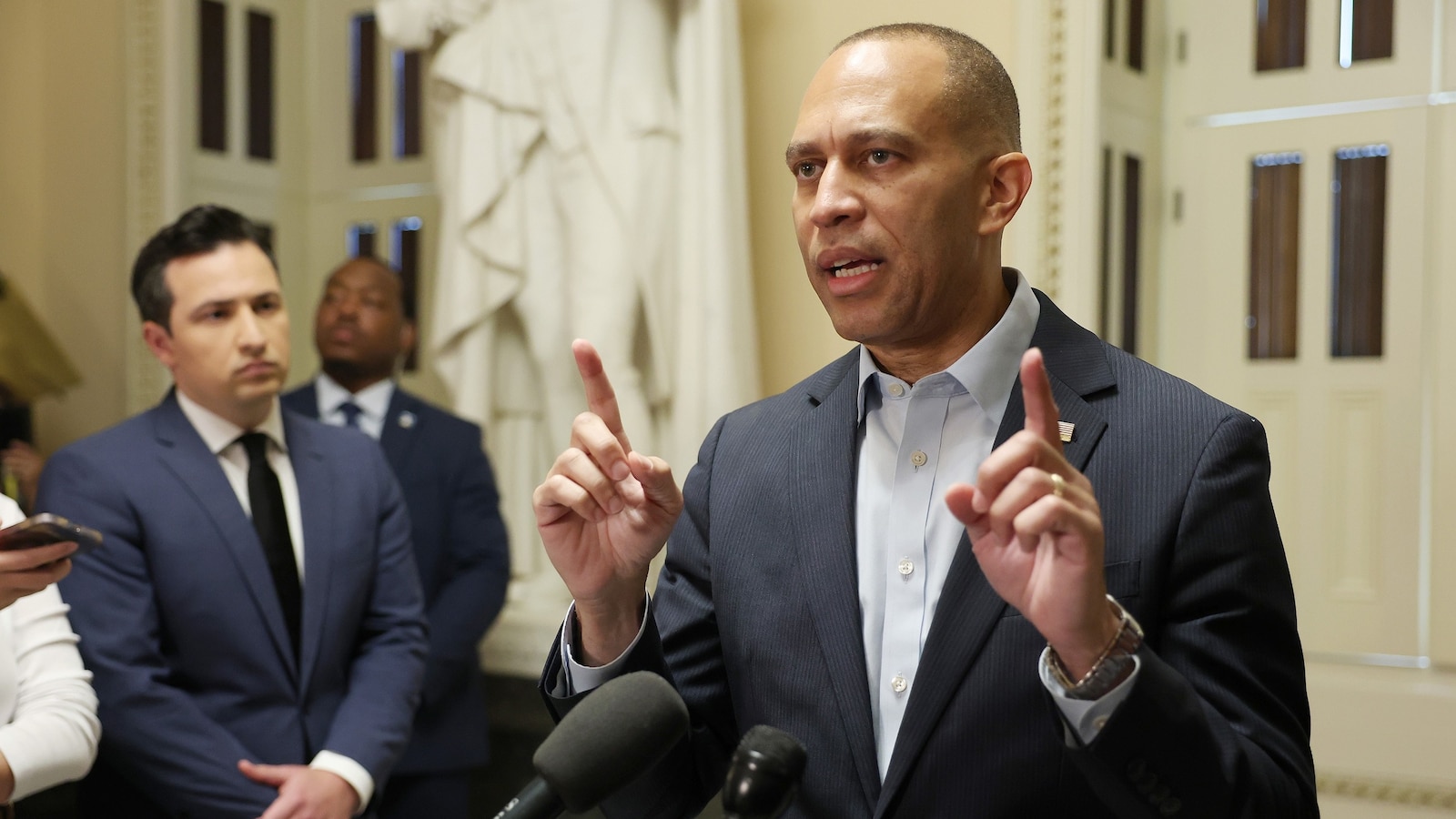Trump Holds High-Stakes Meeting with Top Democrats as Government Shutdown Looms
In a dramatic turnaround amid escalating partisan tensions, President Donald Trump is set to host a bipartisan meeting with the top four congressional leaders at the White House on Monday, September 29, 2025, in a last-ditch bid to avert a partial government shutdown set to begin at midnight on Tuesday. The gathering—featuring Senate Majority Leader John Thune (R-S.D.), Senate Minority Leader Chuck Schumer (D-N.Y.), House Speaker Mike Johnson (R-La.), and House Minority Leader Hakeem Jeffries (D-N.Y.)—comes just days after Trump abruptly canceled a planned sit-down with Schumer and Jeffries, accusing them of “unserious and ridiculous demands.”
The reversal, brokered through backchannel talks between Johnson and the White House, injects a flicker of hope into negotiations that have teetered on the brink of collapse. With federal funding expiring at 11:59 p.m. on September 30, failure to reach a deal could furlough hundreds of thousands of non-essential workers, halt services like national parks and passport processing, and delay paychecks—echoing the 2018-2019 shutdown that cost $11 billion in economic output. As the Oval Office clock ticks, both sides are posturing fiercely, with Trump leveraging the talks to pressure Democrats on healthcare subsidies while Republicans hold firm on spending cuts.
The Sticking Points: Healthcare Subsidies and Spending Cuts
At the heart of the impasse are Democrats’ demands to extend enhanced Affordable Care Act (ACA) subsidies—set to expire December 31, 2025—which have helped 20 million Americans afford insurance, reducing uninsured rates to historic lows. Schumer and Jeffries, in a joint statement Saturday, called the meeting a “first step” to resolving the “Republican healthcare crisis,” insisting on permanence for the subsidies and reversal of Medicaid cuts embedded in Trump’s July tax bill.
Republicans, led by Thune and Johnson, view these as “partisan poisons” unrelated to the stopgap funding bill, which would maintain current spending levels through November 21. Thune, on NBC’s Meet the Press, placed the “ball in their court,” urging Democrats to pass the House-approved bill without add-ons. Trump, in a Truth Social post, reiterated his stance, slamming Democrats for “Radical Left Views” on immigration and crime while leaving the door ajar for “serious” talks.
The House passed the clean continuing resolution (CR) on September 19 by a razor-thin 217-215 margin, but Senate Democrats blocked it, lacking the 60 votes needed to overcome a filibuster. A Democratic alternative also failed, leaving lawmakers in recess until Tuesday—hours before the deadline. The White House Office of Management and Budget (OMB) has already directed agencies to prepare contingency plans, including mass furloughs and delayed payments.
| Sticking Point | Democratic Demand | Republican Stance | Potential Impact of Shutdown |
|---|---|---|---|
| ACA Subsidies | Permanent extension of enhanced credits (expiring Dec. 31) | Non-negotiable; unrelated to funding bill | 20M lose affordable coverage; uninsured rate spikes 5-7% |
| Medicaid Cuts | Reverse July tax bill reductions | Essential for fiscal restraint | Delayed benefits for 80M low-income Americans |
| Overall Funding | Stopgap through Nov. 21 with health protections | Clean CR at current levels | Furloughs for 800K workers; $11B economic hit (like 2018) |
Blame Game Escalates: Trump vs. Democrats in the Spotlight
The cancellation on September 23—hours after Schumer and Jeffries announced the meeting—ignited a firestorm of finger-pointing. Trump lashed out on Truth Social, claiming Democrats sought a “shutdown brawl” and free healthcare for “illegal migrants,” while Schumer accused him of “running away from the negotiating table.” Jeffries echoed: “Trump will own the shutdown,” tying it to the “Republican healthcare crisis.”
Republicans, including Johnson, urged Trump to skip the Democrats-only huddle, fearing a PR ambush. Thune, on NBC, insisted a clean bill “sits at the desk” in the Senate, ready for a vote Tuesday. Democrats, in a joint statement, welcomed the revived talks as a “resolute” step toward common ground.
Public sentiment? Polls show 60% blame Republicans for past shutdowns, but Trump’s base rallies behind his hardline stance. On X, #ShutdownShowdown trended with 150K posts, split between “Trump’s fighting waste!” and “GOP holding America hostage.”
High Stakes: Economic Ripples and Political Fallout
A shutdown would disrupt $7 trillion in federal spending, furloughing 800,000 workers and closing landmarks like the Smithsonian—echoing the 35-day 2018-19 stalemate that cost $11 billion. Economically, it could shave 0.2% off GDP in Q4, per CBO estimates, with ripple effects on veterans’ benefits and IRS refunds. Politically, it’s a midterm minefield: Republicans risk alienating moderates in swing districts, while Democrats leverage healthcare as a voter magnet.
For everyday Americans, it’s chaos: Delayed Social Security checks, halted food inspections, and unpaid Coast Guard salaries—pain points from past shutdowns. Lifestyle hit? Families scrap fall travel; small businesses lose federal contracts.
Crystal Ball: Deal or Deadlock?
Monday’s meeting—Trump’s first with Schumer since January—could break the logjam if Democrats soften on subsidies and Republicans budge on Medicaid. Analysts peg a 60% chance of a clean CR passing Tuesday, per PredictIt, but Thune’s vow to force a vote adds pressure. Failure? Blame will fly, with Trump eyeing executive orders to “cut waste.”
As the deadline looms, Washington’s high-stakes poker game hangs on Oval Office handshakes—will compromise prevail, or will America pay the ante?
By Sam Michael
September 30, 2025
Follow and subscribe to us for push notifications—stay ahead with instant alerts on breaking political news!
